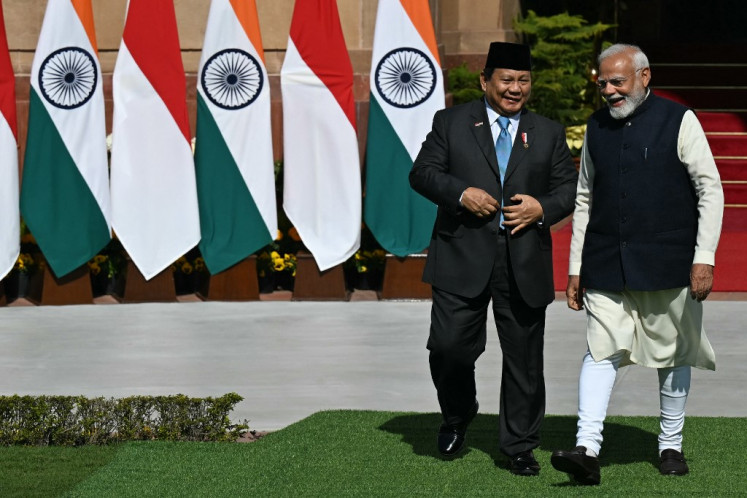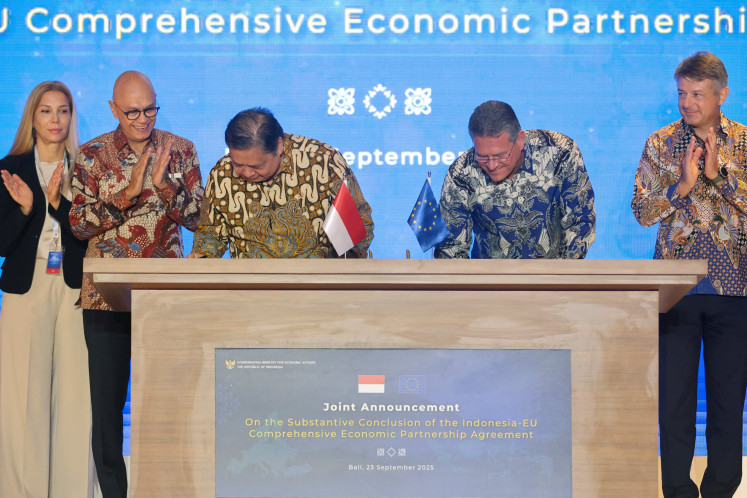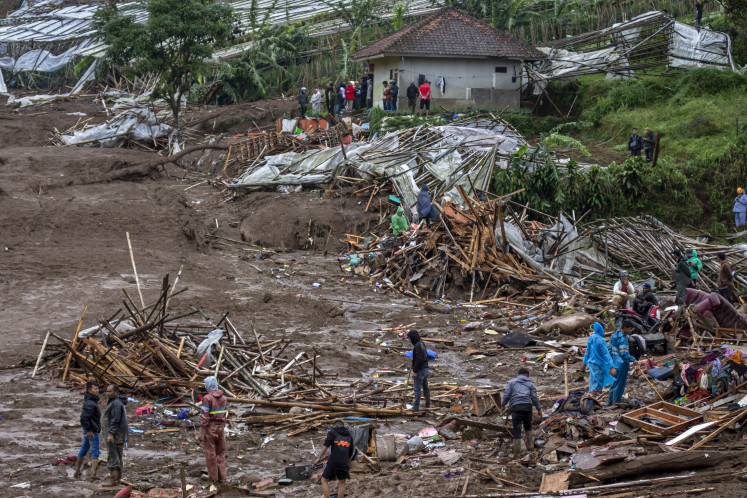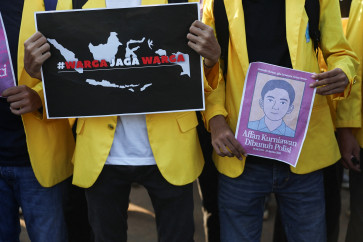Popular Reads
Top Results
Can't find what you're looking for?
View all search resultsPopular Reads
Top Results
Can't find what you're looking for?
View all search resultsDigital sovereignty or digital chaos? Lessons from the unrest
Digital amplification forces us to confront an uncomfortable truth about freedom of expression in the internet age.
Change text size
Gift Premium Articles
to Anyone
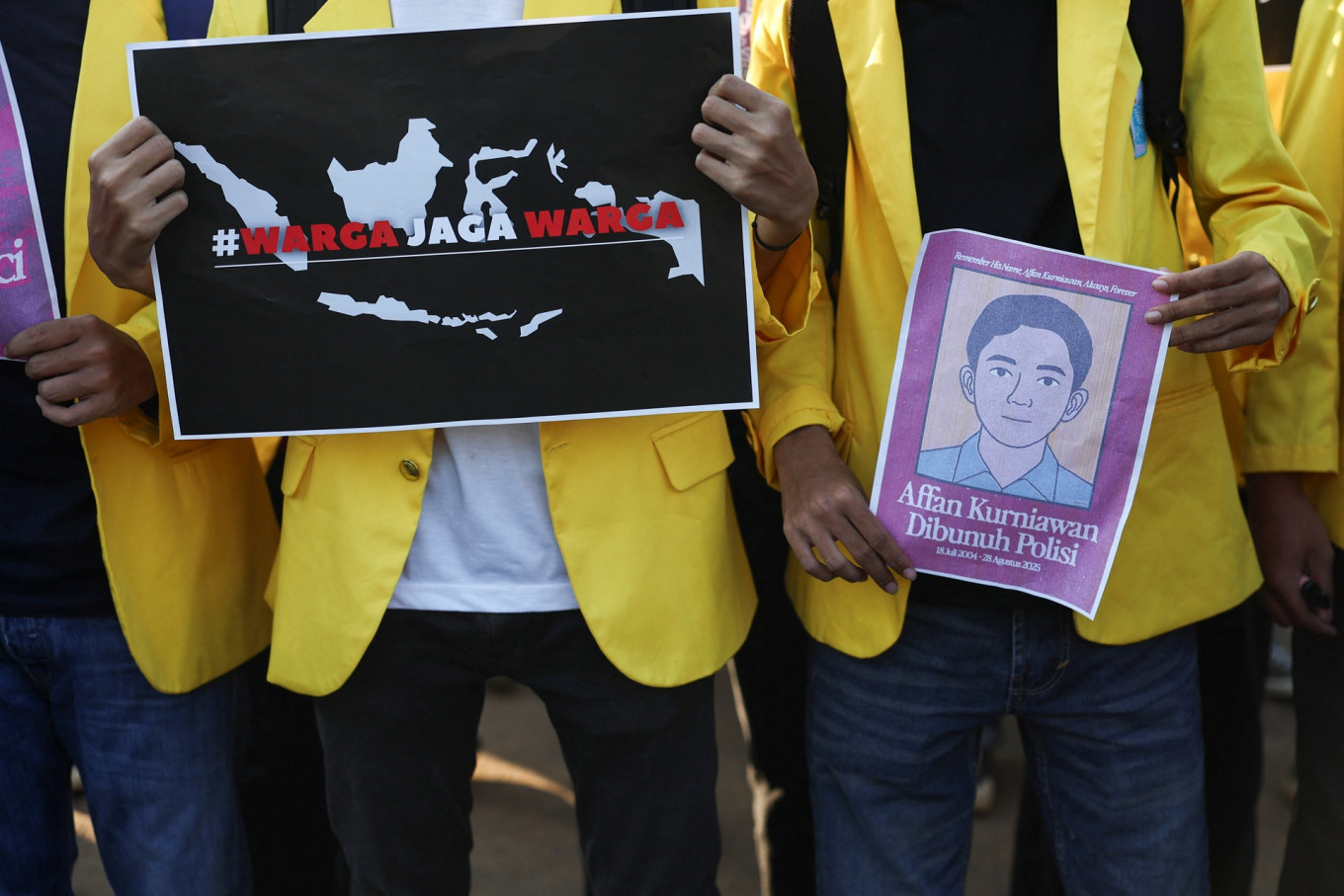 University students hold a poster at a rally on Sept. 4 outside the Senayan legislative complex in Jakarta that reads #WargaJagaWarga (Citizens guarding citizens) and a picture depicting Affan Kurniawan, a 21-year-old motorcycle ride-hailing driver who was run over and killed on Aug. 28 by a police armored vehicle during protests over lawmakers' lavish pay and allowances. (Reuters/Willy Kurniawan)
University students hold a poster at a rally on Sept. 4 outside the Senayan legislative complex in Jakarta that reads #WargaJagaWarga (Citizens guarding citizens) and a picture depicting Affan Kurniawan, a 21-year-old motorcycle ride-hailing driver who was run over and killed on Aug. 28 by a police armored vehicle during protests over lawmakers' lavish pay and allowances. (Reuters/Willy Kurniawan)
T
he violent unrest that shook several cities recently did not just expose deep social tensions, but revealed how digital platforms can rapidly escalate offline conflict.
Social media transformed from passive observer to active participant, fueling chaos through live streams, viral hashtags and real-time narratives that turned local disturbances into nationwide spectacle within hours.
When looters targeted officials’ homes and destroyed public facilities, the line between legitimate expression and the incitement of violence became dangerously blurred.
This digital amplification forces us to confront an uncomfortable truth about freedom of expression in the internet age. While Article 28F of the Constitution guarantees citizens the right to seek, obtain and convey information through any channel, and Article 19 of the International Covenant on Civil and Political Rights (ICCPR) reinforces these protections, neither treats this freedom as absolute.
Article 19 (3) of the ICCPR makes clear that restrictions are permissible, but only if provided by law and necessary to protect national security, public order, public health or morals, or the rights and reputations of others. But the challenge lies in ensuring such restrictions remain proportionate, transparent and legally sound, rather than sliding into tools of arbitrary suppression.
What makes this challenge particularly acute today is the growing sophistication of the so-called foreign information misinformation infiltration (FIMI). Foreign actors now exploit Indonesian digital platforms as weapons, spreading disinformation designed to destabilize democratic processes and sow institutional distrust.
The rise of artificial intelligence has only made this worse, enabling rapid creation of deepfakes and hyper-realistic fabrications that make it nearly impossible for ordinary citizens to distinguish authentic content from manufactured lies. Beyond fueling immediate unrest, this information warfare systematically erodes social cohesion and can derail long-term development goals.





